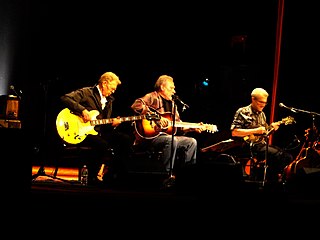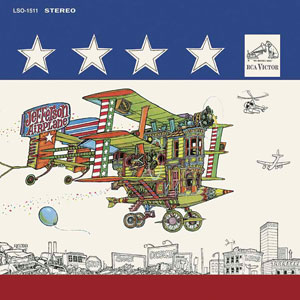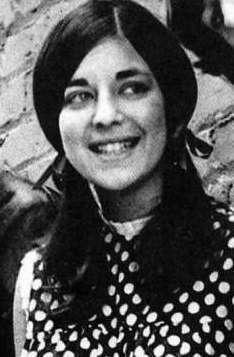Related Research Articles

Lemon Henry "Blind Lemon" Jefferson was an American blues and gospel singer-songwriter and musician. He was one of the most popular blues singers of the 1920s and has been called the "Father of the Texas Blues".

Jefferson Airplane was an American rock band based in San Francisco, California, that became one of the pioneering bands of psychedelic rock. Formed in 1965, the group defined the San Francisco Sound and was the first from the Bay Area to achieve international commercial success. They headlined the Monterey Pop Festival (1967), Woodstock (1969), Altamont Free Concert (1969), and the first Isle of Wight Festival (1968) in England. Their 1967 breakout album Surrealistic Pillow was one of the most significant recordings of the Summer of Love. Two songs from that album, "Somebody to Love" and "White Rabbit", are among Rolling Stone's "500 Greatest Songs of All Time".

Lizzie Douglas, better known as Memphis Minnie, was a blues guitarist, vocalist, and songwriter whose recording career lasted for over three decades. She recorded around 200 songs, some of the best known being "When the Levee Breaks", "Me and My Chauffeur Blues", "Bumble Bee" and "Nothing in Rambling".

Hot Tuna is an American blues rock band formed in 1969 by former Jefferson Airplane members Jorma Kaukonen (guitarist/vocals) and Jack Casady (bassist). Although it has always been a fluid aggregation, with musicians coming and going over the years, the band's center has always been Kaukonen and Casady's ongoing collaboration.
Lester Franklin Melrose was a talent scout who was one of the first American producers of Chicago blues records.

Surrealistic Pillow is the second album by the American rock band Jefferson Airplane, released by RCA Victor on February 1, 1967. It is the first album by the band with vocalist Grace Slick and drummer Spencer Dryden. The album peaked at number three on the Billboard album chart and has been certified Platinum by the RIAA. The album is considered to be one of the quintessential works of the early psychedelic rock and 1960s counterculture eras.

"When the Levee Breaks" is a country blues song written and first recorded by Memphis Minnie and Kansas Joe McCoy in 1929. The lyrics reflect experiences during the upheaval caused by the Great Mississippi Flood of 1927.

Martyn Jerel Buchwald, known as Marty Balin, was an American singer, songwriter, and musician best known as the founder/leader and one of the lead singers and songwriters of Jefferson Airplane and Jefferson Starship.

Jorma Ludwik Kaukonen, Jr. is an American blues, folk, and rock guitarist. Kaukonen performed with Jefferson Airplane and still performs regularly on tour with Hot Tuna, which started as a side project with bassist Jack Casady, and as of early 2019 has continued for 50 years. Rolling Stone magazine ranked him No. 54 on its list of 100 Greatest Guitarists. He was inducted into the Rock and Roll Hall of Fame in 1996 as a member of Jefferson Airplane.

John William "Jack" Casady is an American bass guitarist, best known as a member of Jefferson Airplane and Hot Tuna. Jefferson Airplane became the first successful exponent of the San Francisco Sound. Singles including "Somebody to Love" and "White Rabbit" charted in 1967 and 1968. Casady, along with the other members of Jefferson Airplane, was inducted into the Rock and Roll Hall of Fame in 1996.

After Bathing at Baxter's is the third studio album by the San Francisco psychedelic rock band Jefferson Airplane, released in 1967 as RCA Victor LSO-1511 (stereo) and LOP-1511 (mono). The cover art is by artist Ron Cobb.
Wilbur "Kansas Joe" McCoy was an American Delta blues singer, musician and songwriter.
The Memphis Jug Band was an American musical group active from the mid-1920s to the late-1950s. The band featured harmonica, kazoo, fiddle and mandolin or banjolin, backed by guitar, piano, washboard, washtub bass and jug. They played slow blues, pop songs, humorous songs and upbeat dance numbers with jazz and string band flavors. The band made the first commercial recordings in Memphis, Tennessee, and recorded more sides than any other prewar jug band.
Jefferson Airplane Takes Off is the debut studio album by the American rock band Jefferson Airplane, released on 15 August 1966 by RCA Victor. The personnel differs from the later "classic" lineup: Signe Toly Anderson was the female vocalist and Skip Spence played drums. Both soon left the group—Spence in May 1966, Anderson in October—and were replaced by Spencer Dryden and Grace Slick, respectively.

Signe Toly Anderson was an American singer who was one of the founding members of the American rock band Jefferson Airplane.

Jefferson Airplane Loves You is a three-CD boxed set of recordings by the San Francisco rock band Jefferson Airplane with extensive liner notes by Jeff Tamarkin, author of the Jefferson Airplane history Got a Revolution: The Turbulent Flight of Jefferson Airplane.
Ernest Lawlars was an American blues guitarist, vocalist, and composer, known professionally as Little Son Joe.

Pair a Dice Found is an album by the American blues rock band Hot Tuna. Released in 1990, it was their first studio album since Hoppkorv in 1976.
"Good Shepherd" is a traditional song, best known as recorded by Jefferson Airplane on their 1969 album Volunteers. It was arranged and sung by the group's lead guitarist Jorma Kaukonen, who described their interpretation of it as psychedelic folk-rock.
References
- ↑ Russell, Tony (1997). The Blues: From Robert Johnson to Robert Cray. Dubai: Carlton Books. p. 13. ISBN 1-85868-255-X.
- ↑ Me and My Chauffeur (Record listing). Memphis Minnie. Okeh Records. 1941. Front label. 06288.
{{cite AV media notes}}: CS1 maint: others in cite AV media (notes) (link) - ↑ Garon, Paul; Garon, Beth (1992). Woman With Guitar: Memphis Minnie's Blues. New York: Da Capo Press. pp. 51ff. ISBN 0-306-80460-3.
- ↑ "BMI Repertoire: 'Me and My Chauffeur Blues' (BMI Work # 970273)". BMI . Retrieved March 26, 2020.
Total Controlled by BMI 50% –Songwriter/composer: Lawler Ernest
- ↑ "ACE Repertory: Me and my Chauffeur (Work ID: 905010300)". ASCAP .
ASCAP controls 50% –Writer: Memphis Minnie
- ↑ Tamarkin, Jeff (2005). Got a Revolution! The Turbulent Flight of Jefferson Airplane. Atria. ISBN 978-0671034047.
- ↑ Garon, Paul (2014). Woman with Guitar: Memphis Minnie's Blues. San Francisco: City Lights Books. p. 140. ISBN 978-0-87286-621-8.
- ↑ "National Recording Registry Class Produces Ultimate 'Stay at Home' Playlist". Library of Congress . March 25, 2020. Retrieved March 25, 2020.